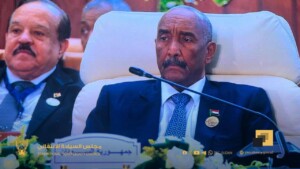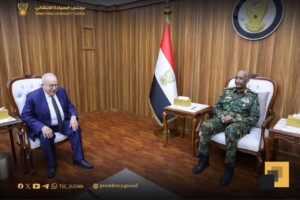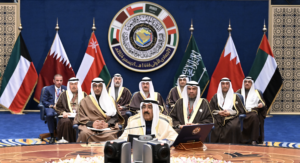Sudan ‘relationship between religion and state defined’
Speaking at a forum entitled ‘Reading the Juba Documents’, in Khartoum yesterday, member of the Sovereign Council Mohamed El Taayshi said that the Juba Peace Agreement has defined the relationship between religion and state.
 Sovereign Council member Mohamed El Taayshi (Social media)
Sovereign Council member Mohamed El Taayshi (Social media)
Speaking at a forum entitled ‘Reading the Juba Documents’, in Khartoum yesterday, member of the Sovereign Council Mohamed El Taayshi said that the Juba Peace Agreement has defined the relationship between religion and state.
He explained that “by separating the institutions of religion from the institutions of the state, the state is at a distance from all religions and this ensures that rights and duties among citizens are based on citizenship.” He confirmed that this will be guaranteed in the new constitution of Sudan.
He also confirmed that all actors taking part in the peace process have approved a federal governance system.
Sudan will be administered in a number of regions/provinces: Khartoum, eastern Sudan, northern Sudan, central Sudan, Darfur, and South and West Kordofan and Blue Nile state.
A governance and administration conference will be held within six months, after the Juba Peace Agreement is signed on October 3, to set up final boundaries between the regions, federal levels of government, the regional governance structure, and the authorities of local governments.
El Taayshi said that the security arrangements file has been very complicated because of the large number of combatants in various rebel movements. It was agreed to integrate all fighters in "the regular forces" (currently consisting of the army and the paramilitary Rapid Support Forces) and then building a military institution with a single military doctrine with one profession, and mechanisms supervising this work.
The Juba Peace Agreement between the Sudanese government and the six member groups of the Sudan Revolutionary Front rebel alliance was signed on August 31, through various tracks.
El Taayshi affirmed that the Juba peace agreement “answers all issues but does not include all parties” on Thursday.
A comprehensive and sustainable peace will only be possible if non-signatories are included, according to El Taayshi, who spoke at a ceremony organised by the Sudan Liberation Movement led by Minni Minawi (SLM-MM) in the presence of members of the Sovereign Council, ministers, and representatives of political parties at the Friendship Hall in Khartoum.
The SLM-MM and the mainstream Democratic Unionist Party (DUP) led by Mohamed Osman El Mirghani, signed a Memorandum of Understanding in the Egyptian capital of Cairo on Wednesday.
On Thursday, protestors called on the transitional government to speed up the peace process and break the deadlock of negotiations with Sudan People’s Liberation Movement-North faction, led by Abdelaziz El Hilu (SPLM-N El Hilu) in South Kordofan and to bring the Sudan Liberation Movement led by Abdelwahid El Nur (SLM-AW) in central Darfur into negotiations.
Radio Dabanga’s editorial independence means that we can continue to provide factual updates about political developments to Sudanese and international actors, educate people about how to avoid outbreaks of infectious diseases, and provide a window to the world for those in all corners of Sudan. Support Radio Dabanga for as little as €2.50, the equivalent of a cup of coffee.












 and then
and then